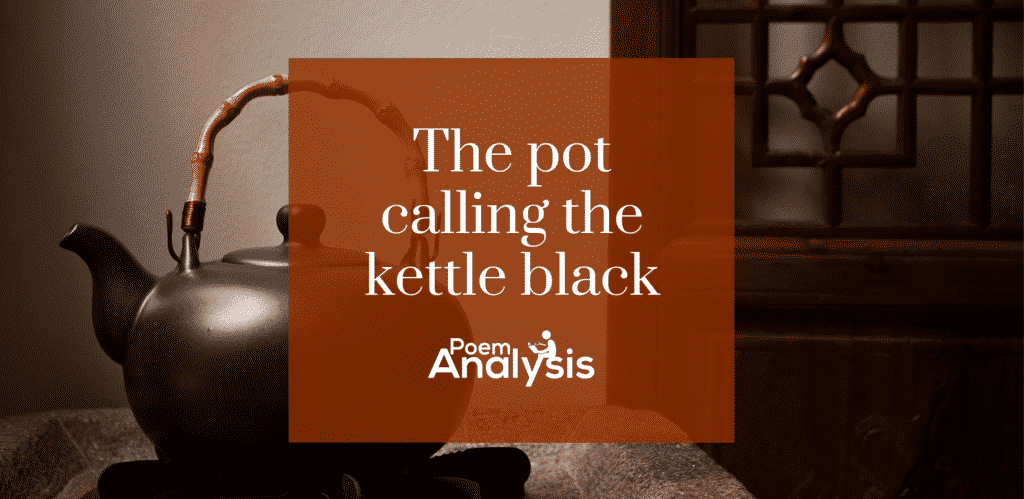“The pot calling the kettle black” is a commonly used English idiom that has its origins in the 17th century. Its context and phrasing have changed since then, but it still has an interesting impact on written and real-life conversations.
This idiom is also a great example of an idiom that fits the dictionary definition of what an idiom is. It is something that can’t be understood without context or examples. An analysis of the individual words will not help a new English-speaker understand when or how to use them.
Meaning of “The pot calling the kettle black”
This idiom used to remind someone that they’re guilty of the same thing that they’re accusing another of.
The “thing” that one has in common with their accuser could be absolutely anything. The phrase is cited as an example of what’s known as physiological projection. One calls out another person for behavior that they themselves are engaged in.
Origin
The first appearance of this idiom is in Thomas Shelton’s translation of Don Quixote in 1620. The line reads:
You are like what [it] is said that the frying-pan said to the kettle, ‘Avant, black-browes’.
These words are spoken by the protagonist whose growing frustrated with Sancho Panza, his servant. In the translation, the words are identified as a proverb that’s used to redirect criticism on someone who plainly has the same faults, habits, or desires.
A few years later, in 1639, the idiom appeared in John Clarke’s Paroemiologia Anglo-Latina, a collection of proverbs. It wasn’t until 1682 though, that the idiom neared the wording that’s commonly used today. This is often the case with these colloquialisms. They start off hundreds of years ago with period-appropriate language and then evolve as the years pass to something that’s more widespread and often easier to understand.
In Some Fruits of Solitude in Reflections and Maxims by William Penn, the phrase “is for the Pot to call the Kettle black” comes after a passage about temperance, tyranny, and rebellion.
When to Use “The pot calling the kettle black”
This idiom should be used in everyday conversations between friends, family members, and close colleagues.
It an example of colloquial language, meaning that isn’t used in elevated speech such as that found in academic papers, speeches, or anything from poetry to letters. The phrase can be used in a humorous way, as a means of teasing someone who is unaware, or even aware, of their own flaws.
Or, alternatively, one might use it in a more negative sense. For example, if friends are talking behind someone else’s back, they might use this phrase in a discussion of someone’s actions. Depending on the situation, the person who initially accuses another of something may or may not realize that they’re doing the same thing. This means the idiom might be a wake-up call for the person who hears it.
Example Sentences
- Geez, how about that as an example of the pot calling the kettle black. I can hardly stand her either.
- I was talking to my friends about my brother and how he has no idea what he’s doing with his life. They just laughed at me and reminded me of the pot and the kettle.
Why Do Writers Use “The pot calling the kettle black”
Writers use this idiom as a way of alluding to a situation that their readers will certainly be aware of.
Idioms like this one are often helpful to writers working on short stories and novels, or any piece of writing that includes dialogue. It’s incredibly important when writing dialogue to make sure that the reader will believe people would actually say the things being said.
One way to work on this is to include recognizable phrases like this one. But, they aren’t always a sure thing. Sometimes too many idioms, the wrong idioms, or cliche idioms make dialogue feel too planned and unnatural rather than spontaneous and genuine.
Related Idioms
- “You read my mind.”
- “Love is blind.”
- “You can lead a horse to water, but you can’t make him drink.”
- “Well begun is half done.”
- “We see eye to eye.”
- “Those who live in glass houses shouldn’t throw stones.”

